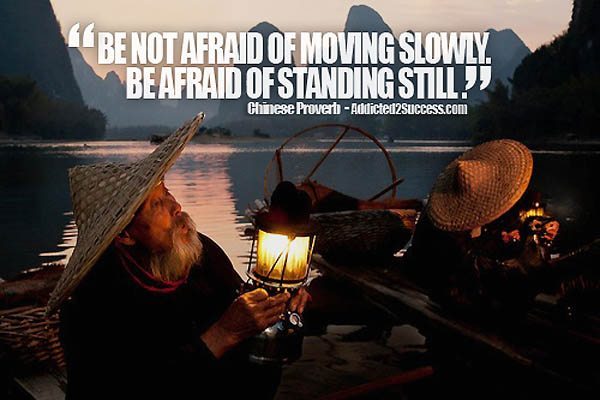Startups
5 Time Management Tips For Lazy Entrepreneurs
Admit it, building a business is tough.
You have a million different things to do, and you must prioritize from a list as long as the Nile.
It drives you nutty sometimes, right? You complete one task and 10 more pop up.
You question your decision to take the entrepreneurial route to save you from the nine-to-five grind, especially now that you’re working twelve-hour days with no end in sight.
So you do the only thing you know how to do. You knuckle down and work even longer hours, clinging to the hope that suddenly everything will become easier.
Yet, you know that won’t work either. Fortunately, the solution to your entrepreneurial woes is more simple than you think — become a lazier entrepreneur.
Why the most successful entrepreneurs are the laziest
Society has always frowned upon laziness, but I have always seen it as a talent. The laziest people are normally the most driven and successful.
Think about it for a second, lazy people want to spend the least amount of time on any given job so they can have fun.
Which of the following scenarios represents less time expended?
- A client emails you asking for an invoice, but you put it off. You take one minute to read it. You spend five minutes pondering a reply over dinner, and you re-read the email before replying the next day.
- You read the email and send a reply instantly.
Ironically, which option represents less effort for a lazy entrepreneur? Which option allows you to grab drinks with your friends or watch a movie with your family without worrying about work?
So it’s time you became a lazy entrepreneur.
It’s time you worked less and became more efficient, and, most importantly, its time you gained the freedom that inspired you to begin entrepreneurship in the first place.
“Progress isn’t made by early risers. It’s made by lazy men trying to find easier ways to do something.” – Robert A. Heinlein
5 Ways to work less and do more
Time management is a skill, but you’ll only use it if you have a good reason to. It’s extremely easy to fall back into working long hours, especially when entrepreneurs seem to compete for the most hours worked.
Efficiency and results should be your only aim, not the length of time worked.
So before you jump headfirst into testing these tips, make sure you’re ready to smash your efficiency levels and work less.
It’s pointless if you don’t actually want to work fewer hours. If you get an ego boost by gloating about that 80-hour week, stop reading now.
But if you’re like me and want the freedom, wealth, and happiness you deserve, beat your ego with the following tips.
1. Cut work that doesn’t truly matter
This is one of the hardest things to do, but analyze how you spend your time and what results you actually want from that time.
80% of your wealth will come from 20% of your work, so cut wastage. Only focus on work that brings in the money you desire.
To do that, you must understand what your goals are.
As a founder, are you looking to increase gross profit, net profit, or spare time?
When you’ve chosen your goal, you must track and understand where you stand right now.
Which clients are your most profitable and easiest to work with? Once you’ve figured this out, ruthlessly cut the other clients that eat up your time and profit.
“Nothing is less productive than to make more efficient what should not be done at all.” – Peter Drucker
2. Do everything last minute
Let’s imagine you have to write a press release, and you only have one hour to write it.
I bet you would complete it on time.
I also bet that if you had twenty hours to complete it, you’d end up taking twenty hours.
You would spend your time collecting useless facts that you wouldn’t even use, and you’d write and rewrite until you reached perfection.
This phenomenon is based on the Parkinson’s Law where “work expands so as to fill the time available for its completion.”
So force yourself to do work at the last minute, and set a time limit to make sure you get it finished and don’t run over.
3. Train yourself like you would train a puppy
Do you know that every time you stop halfway through your work to grab a coffee or similar distraction, you are training your body to have bad habits?
Such actions are analogous to training your dog to sit, yet giving him a treat when he plays dead instead.
So if you want to keep your mind focused, you must train yourself like a puppy.
When you finish your work, you get a treat.
This will teach you to work harder and stay focused longer so you can get a break and grab that coffee.
Sounds a bit weird, but it works.
4. Stop wasting energy on pointless tasks
I woke up one morning, grabbed breakfast, and then picked up my phone and read two articles about a new live streaming app.
This led to me downloading the app and playing with it a bit.
Before I knew it, one hour had disappeared.
Has this happened to you?
I bet it has, so to avoid such pitfalls, you must have one aim only.
Seriously, only one aim!
It could be building your email list or designing your logo, but create one thing to focus on.
This gives you a reference point you can refer to when considering and doing other activities throughout the day.
You are an entrepreneur; your job is to succeed. So next time you pick up that new article, app, or social network, ask yourself, “How will this help me reach my dream? How will it help me reach freedom?”

5. Skip your meetings
That’s right, I said it.
Meetings are a waste of time and energy. Stop lying to yourself.
Do you truly need to go to the next meeting you’ve got arranged?
Would emailing the information be more effective?
Even better, could you use team collaboration software like Basecamp and just cut out all meetings?
Most meetings are just distractions and excuses not to get the critical work done.
So rethink your meetings.
Will they add to your productivity and efficiency or take away from them?
It’s your turn
You started your company to build freedom in your life.
You built your website, brought your first client on board, and made that first dollar for one thing.
Freedom!
So stop working long, grueling hours, and start working smarter.
Start being lazy and efficient, and start using your time only on the things that matter to you and your goals.
This is your opportunity to radically transform the way you work.
Start living the type of happy, fulfilling life you truly desire.
Shift Your Mindset
10 Powerful Traits Every True Thought Leader Possesses
In a world saturated with noise, thought leadership is the quiet power that shifts paradigms.

Thought leadership is more than just having strong opinions. It’s the ability to influence, inspire, and guide others by sharing original insights, innovative ideas, and deep domain expertise. It’s about sparking change, not just talking about it. (more…)
Startups
The Young Man’s Guide to Creativity: 10 Daily Habits to Improve Your Creative Mind
10 daily habits you can put into practice right now to improve your creativity

When I was 22 years old, I became a Top Writer on Medium.
It’s not an easy path. I lived in the Philippines and had never received a penny after writing over 100 digital articles. But I treated it like practice. If I couldn’t get other people to read my work for free, why would they trust me? (more…)
Startups
If You’re Not Reinventing Yourself, You’re Falling Behind! Here’s What To Do
Reinvention is the secret weapon of high performers.

Reinvention is the secret weapon of high performers.
Most careers follow a predictable script. You start at the bottom, climb the ranks, and eventually settle into something resembling stability. But the people who make the biggest impact, the ones who don’t just play the game but change it, break that script. They evolve. They shift. They reinvent. (more…)
Startups
The Silent Killer of Startups: This Might Be Draining Your Profits
If you are careless in managing your inventory, it can lead to a sudden depletion in cash flow

There are several issues in a startup, but if you are really careless in managing your inventory, it can lead to a sudden depletion in cash flow. Old, broken, and misplaced stock wastes space and profits. If inventories and storage aren’t managed properly, it hardly ever works.
-

 Personal Development4 weeks ago
Personal Development4 weeks agoWant to Change the World? Start by Sharing Your Knowledge
-

 Success Advice3 weeks ago
Success Advice3 weeks agoThe One Mindset Shift That Made Me Irreplaceable At Work
-

 Scale Your Business3 weeks ago
Scale Your Business3 weeks agoWhy Smart Entrepreneurs Never Skip This One Business Expense
-

 Success Advice2 weeks ago
Success Advice2 weeks agoHow Playing by the Rules Became the Smartest Business Strategy
-

 Did You Know2 weeks ago
Did You Know2 weeks ago7 Surprising Life Lessons Video Games Taught Me That School Never Did
-

 Success Advice2 weeks ago
Success Advice2 weeks agoHow to Build Trust, Kill Micromanagement, and Lead a Team That Thrives
-

 Scale Your Business2 weeks ago
Scale Your Business2 weeks agoHow to Build a Workplace People Actually Want to Show Up To
-

 Success Advice1 week ago
Success Advice1 week agoSuccess Isn’t Sexy: 5 Daily Habits That Actually Work






























8 Comments